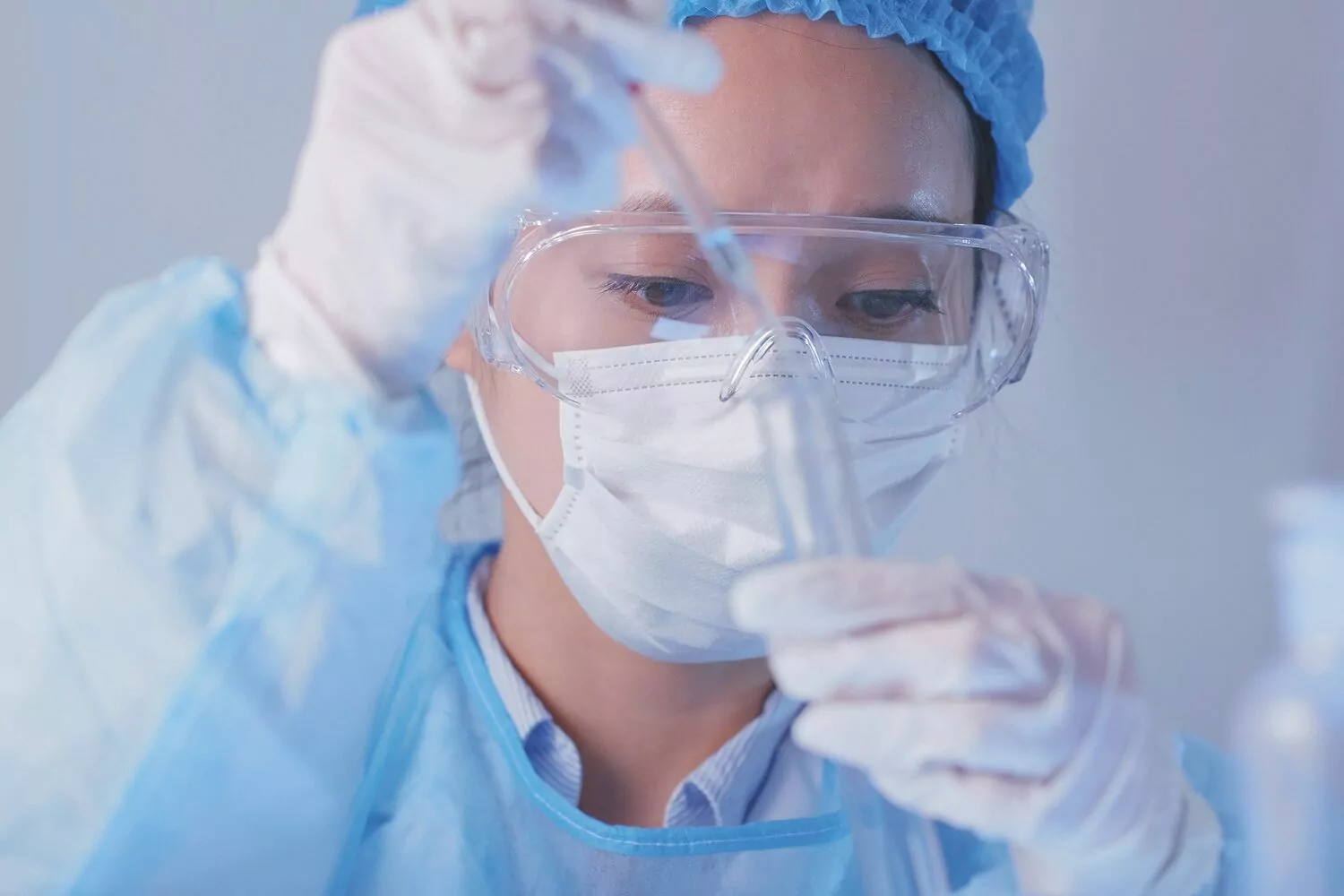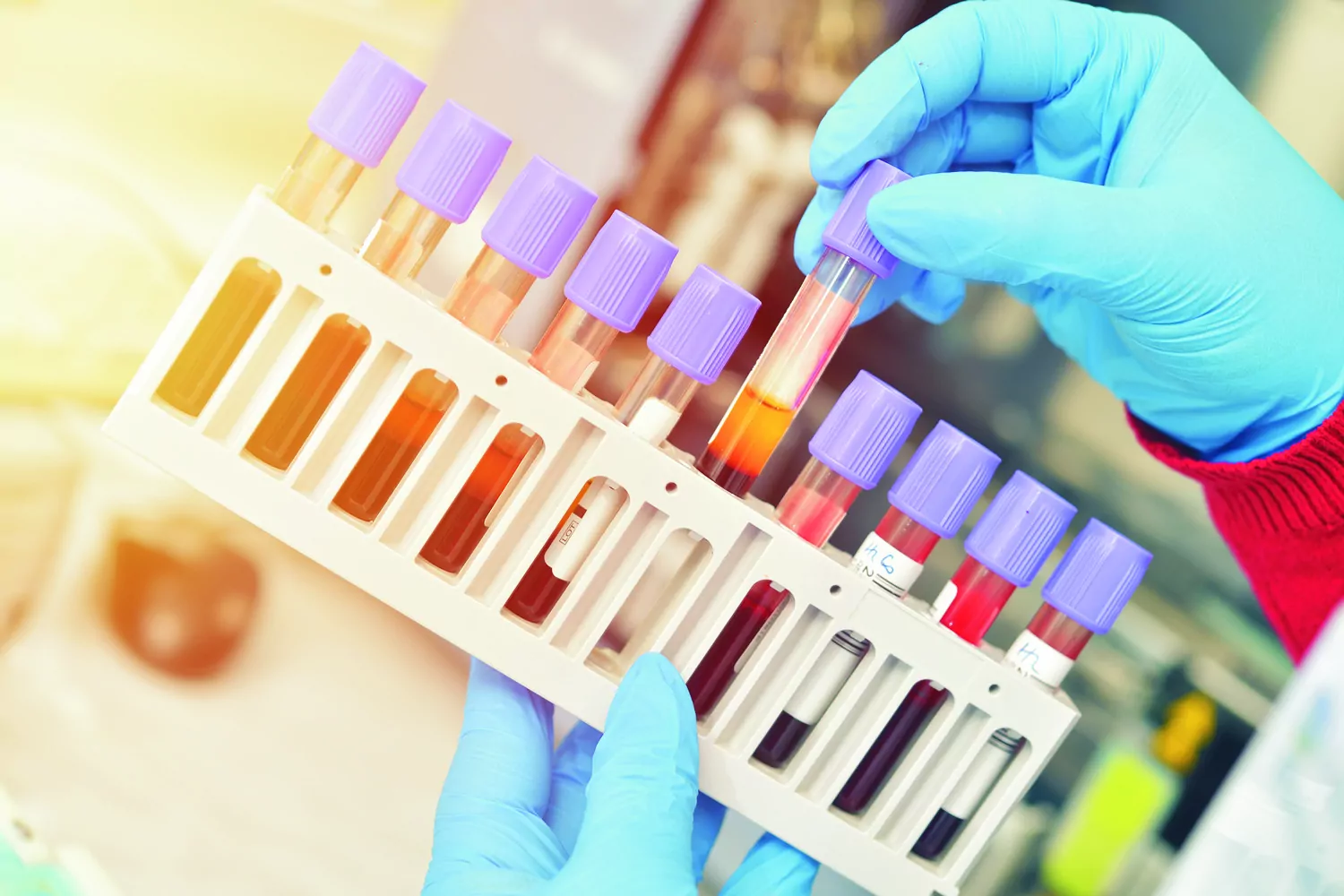The Importance of Newborn Screening: A Mother’s Perspective

After completing my undergraduate degree, I began work at the New England Newborn Screening Program (NENBS) in Jamaica Plain, Massachusetts. It wasn’t long before I realized the magnitude of the job I held in serving the public and my role in the life-saving tests that the program performed.

The NENBS program consists of five testing laboratories. I was assigned to work in the Metabolic lab and was trained to screen dried blood spot samples for inborn metabolic disorders using FIA-MS/MS technology and software. I worked in the metabolic lab for seven years, and during that time I built the foundational work-ethic, passion for accuracy and success, and dedication to teamwork that sticks with me today. Working for NENBS was a character-building experience for which I’ll be forever grateful.
All team members of the NENBS are considered essential employees of the state. Similar to a hospital, there must be someone processing samples in the lab every day. For me, this often meant driving through major snowstorms, working late into the night, and coming in to the lab on many, many weekends and holidays to achieve rapid turnaround on vital screening and second-tier testing, and most importantly, report accurate results on time.
The disorders tested in the metabolic lab are rare, but many are serious. Sample submission and rapid results are critical to pre-symptomatically detect disorders in a life-saving time frame.
NENBS is a regional screening program, meaning that each state within the region determines which testing profile accompanies the babies born in that state. While all states require newborn screening for every infant, the number of test conditions on the state screening panels may vary. Each state’s public health department decides which test conditions to include on its panel. They also develop and manage each state’s newborn screening program, which is designed to ensure that the parents of babies with out-of-range screening results are notified, and the babies receive diagnostic testing and follow-up medical and often genetic care.
Newborn screening test panels vary between states due to several factors, including:
- The legislature of the state
- The overall cost of screening and funding source for the NBS program
- The frequency of the disorder occurrence in the state
- The availability of treatments and follow-up for each disorder
Many parents are not aware that their newborn is screened for a large panel of conditions within their first week of life. The hospital reviews policies and procedures, hands off a packet of paperwork and information, and proceeds to care for mom and baby. The time after giving birth consists of a variety of activities, feelings, and thoughts. I’m not sure how many parents look through that packet of paperwork during this busy, tiring time frame. However, my experience made me a little different from most parents.
When I got married and began to plan for a family, I knew that giving birth in Massachusetts would give my newborn the most extensive panel of test conditions available at that time in my region. Before giving birth to my first child, I spoke with my obstetrician to ensure we ordered the proper testing panel and aligned expectations on when to report results to my child’s pediatrician. In the hospital, when my son was born, I was alert to the appropriate time frame for taking his blood sample and understood what a viable test sample looked like vs. a non-viable test sample. I can only imagine what the hospital staff thought of the controlling new mom checking up on their newborn screening sample submission techniques!
I now have four children and have breathed a sigh of relief after each newborn screening results panel returned normal.
I worked in the lab for a few more years following the birth of my first son. To strike the best work-life balance for my growing family, I began exploring a move to a job that didn’t require the weekend and holiday hours that the lab did. At one point, I mentioned my plan to our phenomenal Waters Field Service Engineer, who suggested that I apply for a career with Waters. I applied for and was offered a role in the Technical Communications department (now known as Customer Experience and Knowledge Management). Our team is responsible for supporting the release of new IVD products. Working with the development team is nostalgic and an absolute treat for me. Waters continues to provide life-saving specialty measurement devices that impact lives in astounding ways.
Read more about mass spectrometry-based newborn screening:
- Second Tier Newborn Screening Tests – Improving the Specificity of One of the Greatest Public Health Achievements
- 11th ISNS European Regional Meeting, Bratislava Slovakia; An Overview
- The Historical Role of Mass Spectrometry in Newborn Screening
- Why Tandem Mass Spec is Essential for Newborn Screening
Popular Topics
ACQUITY QDa (17) bioanalysis (11) biologics (14) biopharma (26) biopharmaceutical (36) biotherapeutics (17) case study (17) chromatography (14) data integrity (22) food analysis (12) HPLC (15) LC-MS (22) liquid chromatography (LC) (20) mass detection (16) mass spectrometry (MS) (54) method development (13) STEM (12) sustainability (12)


